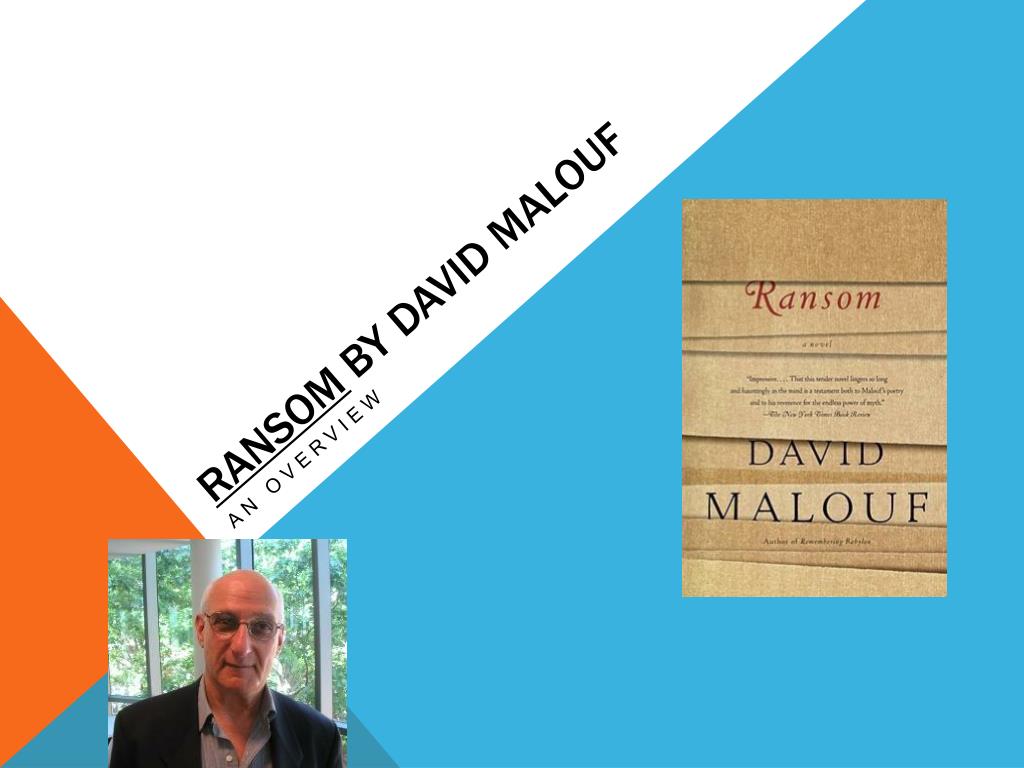

Both the lyricism of his prose and the delicacy of his characterisation enable Malouf to avoid the risk of bathos that so often stalks novelists when they try to update epic. As in the Iliad, so in Ransom, the moment when Priam finally meets Achilles and states his mission brings a lump to the throat. No one, and certainly not a writer as talented as Malouf, can go far wrong with material like this. "I put to my lips the hands of the man who killed my son." "I have endured what no one on earth has ever done before," he says. The scene is set for one of the most wrenching episodes in world literature: when Priam, Hector's father, travels to Achilles' camp, falls to his knees, and begs for the return of the corpse. Dragging the body behind his chariot, so that it is left a mere "thing – bloody and unrecognisable", he refuses either to have it burned or to ransom it.

Savage with grief for his beloved cousin, Patroclus, whom Hector had killed, Achilles vents his rage and misery on the Trojan prince's corpse. As slim and spare as Homer's great poem is immense, Ransom starts at the moment when Hector, noblest of the princes of Troy, has been slain at the hands of Achilles, deadliest and most god-like of the Greeks. David Malouf's reworking of the climactic episode of the Iliad demonstrates that epics are no less susceptible than symphonies to being chopped up and repackaged in accessible, bite-size chunks. I f Classic FM published fiction, then Ransom is the kind of novel that would surely result.


 0 kommentar(er)
0 kommentar(er)
